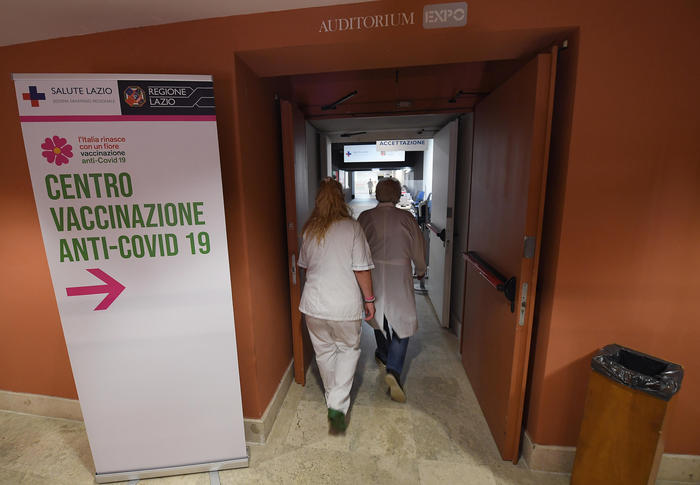The number of cases among health workers has been decreasing since the second half of August, but more slowly than the decline in cases in the rest of the population. This was revealed by the Extended Report of the Istituto Superiore di Sanita ', published on the Epicentro website. A slight increase emerges in correspondence with the increase in the number of cases in the remaining population at the beginning of July. While cases in the population have been decreasing sharply since the second half of August, cases among healthcare professionals are decreasing more slowly (358 compared to 380 the previous week) and is now 2.1% compared to the rest of the population.
In the over 80 group in the last 30 days the hospitalization rate among the unvaccinated was 9 times higher than in the vaccinated, in intensive care 11 times higher and the death rate 14 times higher. This was revealed by the extended report of the Istituto Superiore di Sanita 'now published on the Epicentro website, updated on 22 September.
"We are still in the pandemic, but the results of the vaccination campaign are very encouraging: this morning we are 77.4% of vaccinable people who have completed their cycle, at 83,600,000 doses administered, a very significant number that is growing and in the the last few days, thanks to the choices made, there is a significant increase in the first doses and this puts us in a position to better govern the epidemic ", said Health Minister
Roberto Speranza
, speaking at" Futura 2021 "the three- days promoted by the CGIL.
"We are in an unprecedented phase of investment. We must continue to increase the resources that the state commits to public health." "In addition to the funding from the NRP, 20 billion in one fell swoop, we must add those to the national health fund, to give continuity. A structural investment is being built". Speranza explained that "the 4 billion of home care will largely go to the personnel and a constant and significant growth of the national health fund will be needed. The basic challenge is to transform the crisis into opportunity. The flow of numbers is objective. and we need to build a structural investment. Then we need to get our hands on the operation which is an excellence but the lesson of Covid must teach us what worked ".
"The PNRR reduces disparities in access to territorial care between the weakest and strongest regions and staff is an essential key". For Speranza this also means "investing in 'community houses' which are different from 'health houses', and on this there is an effort on social issues with Minister Andrea Orlando, because where there is a social crisis, then there is also the health crisis ". "We want to put the resources on staff who will provide home care, and therefore we need a constant, significant growth of the national fund and we are working on this and I believe the challenge will meet the support of social forces and trade unions, such as the CGIL. . The word proximity, 4 billion on home care, with the home as the first place of care,it means more doctors and nurses going to homes but also more technology and digital capability "he concluded.
"The commitment to help the neediest countries by donating vaccine doses is fundamental
. Inequality on the vaccine is unsustainable and we must all work to support the neediest countries".
"To do this, we have to work in two ways: immediately, by donating the doses, as we are doing, to bring them to a significant percentage of vaccinations, and through technological support, favoring the production of vaccines also in other areas of the world, but you don't do this in a few days ".
"We are working to bring Italy to have a greater level of autonomy for the future in the production of vaccines,"
said Speranza.

